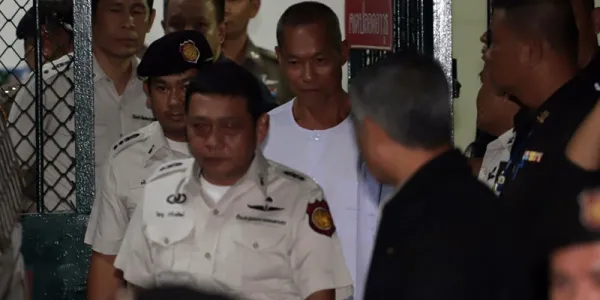By Kornkritch Somjittranukit |
<div> </div>
<div>Despite close ties with the military government, an anti-election hyper-royalist monk has been detained for criminal association, extortion and counterfeiting a royal emblem. The incident has raised the question of whether the junta is still in full control of Thai politics.</div>
<div>
</div>
By Kornkritch Somjittranukit |
<div>
<div>While the junta seeks reasons to remain in power, the public, politicians and even the anti-election protesters from 2014 are increasing their demands for elections.</div>
<div> </div>
<div>The National Council for Peace and Order is once again attempting to delay the country’s democratisation. Late last month, Prayut posed a four-question survey through his weekly televised address.
</div></div>
<div>A commission tasked by Thailand’s junta with achieving political reconciliation will be dominated by military appointees, even though military interference in politics is itself a prime source of conflict. </div>
<div> </div>
<div>Last week, Gen Prawit Wongsuwan, the deputy junta head, revealed the military government’s national reconciliation plans, <a href="http://www.prachatai.org/english/node/6833">receiving both criticism and support from politicians. </a></div>
<div> </div>
<div>The plans include political amnesties and Memorandum of Understandings (MOU) between all
</div>
<div>A provincial court in southern Thailand has acquitted anti-election protesters accused of preventing 2014 election, ruling that all witnesses were political opponents of the defendants.
</div>

